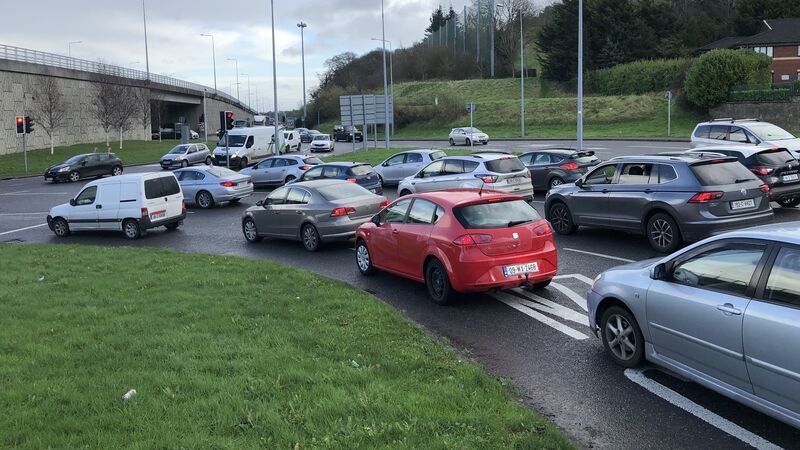Cork's traffic congestion set to get far worse by 2040, analysis shows

In Cork, it estimated the cost of congestion across the metropolitan area in 2022 was €57.5m. This is forecast to rise to €97.2m by 2040. Picture: Larry Cummins
Try from €1.50 / week
SUBSCRIBETraffic congestion plaguing Cork motorists is going to get far worse by 2040, despite the long-awaited improvements in public transport, a Department of Transport analysis has warned.
Any relief for weary motorists stuck in their cars during rush hour through the likes of BusConnects , park and ride sites, and a high-quality cycle network across the city will be offset by economic and population growth, meaning the morning and evening scramble to and from work and school will be as frustrating as ever, it found.
Already a subscriber? Sign in
You have reached your article limit.
Annual €130 €80
Best value
Monthly €12€6 / month
Introductory offers for new customers. Annual billed once for first year. Renews at €130. Monthly initial discount (first 3 months) billed monthly, then €12 a month. Ts&Cs apply.
CONNECT WITH US TODAY
Be the first to know the latest news and updates
Newsletter
Keep up with stories of the day with our lunchtime news wrap and important breaking news alerts.


Commemorating 100 years since the War of Independence

Select your favourite newsletters and get the best of Irish Examiner delivered to your inbox
Tuesday, February 10, 2026 - 12:00 PM
Tuesday, February 10, 2026 - 10:00 AM
Tuesday, February 10, 2026 - 12:00 PM
© Examiner Echo Group Limited